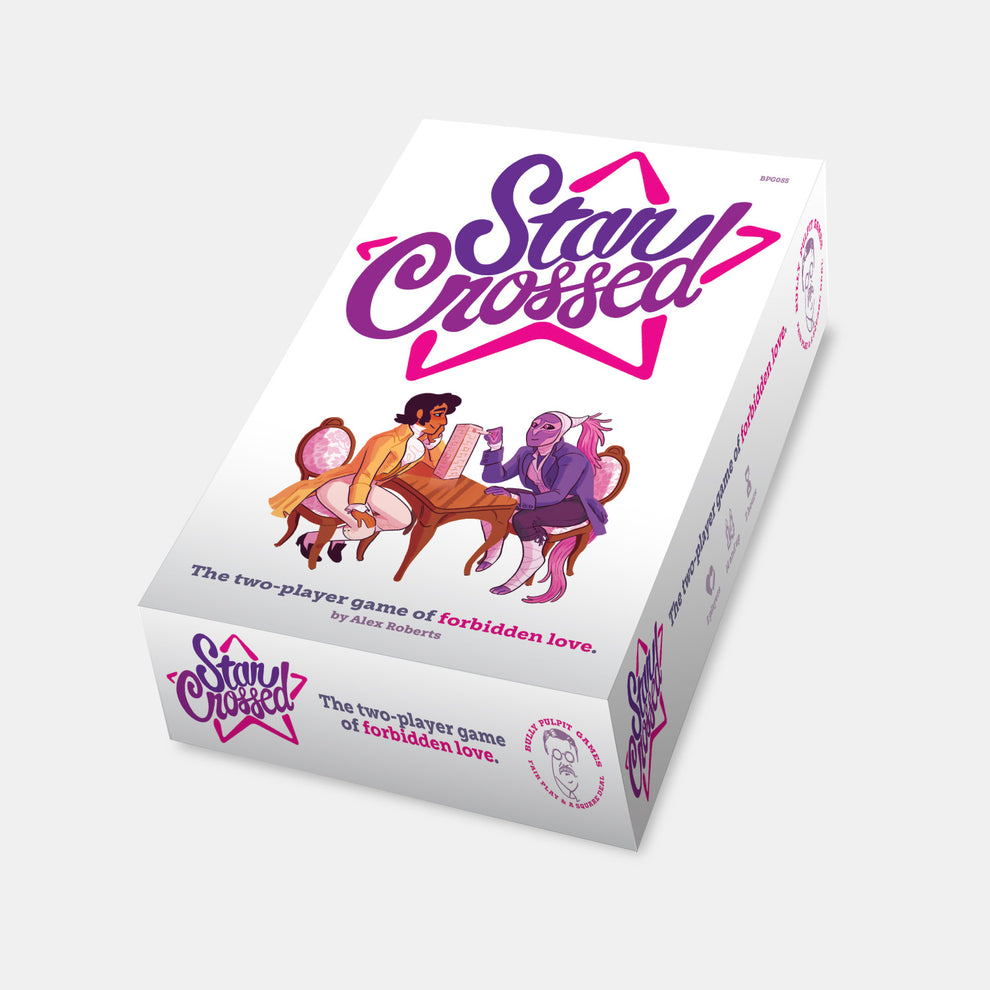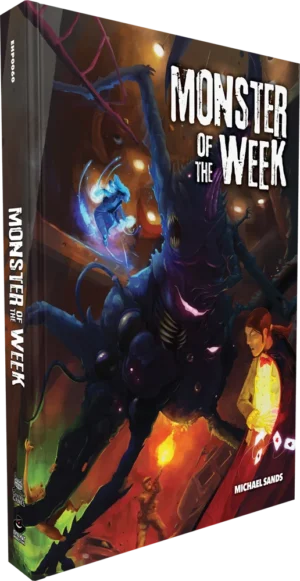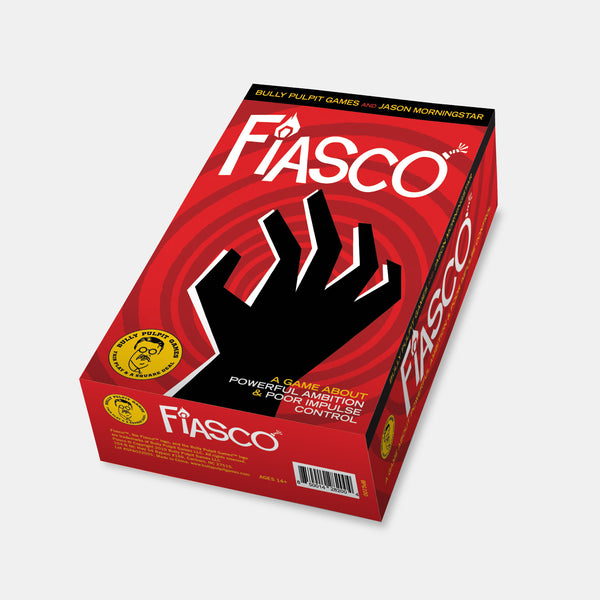Star Crossed Romance & Slice-of-Life; Psychological; Narrative-Driven; GM-less / Cooperative; Innovative Mechanics; Social Intrigue
Star Crossed is a two-player tabletop roleplaying game centered around the theme of forbidden love and intense attraction under difficult circumstances. It distinguishes itself with its GM-less, cooperative, and narrative-driven mechanics, utilizing a Jenga tower as a core element to build tension and determine the fate of the characters' relationship. The game aims for emotional player experience through exploration of romance and psychological themes.
Theme and Setting
Star Crossed revolves around the compelling theme of forbidden love and intense attraction in the face of adversity. The setting is flexible and can be tailored to various scenarios from a Queen and her knight to a lonely trucker and an alien brain parasite. The core idea is that the characters involved are powerfully drawn to each other, but external or internal factors prevent them from easily acting on their feelings. This setup creates immediate dramatic tension, ripe for exploring themes of romance, social intrigue, and psychological conflict. The game encourages players to define their characters and the reasons behind their forbidden attraction, fostering creativity and personal investment in the narrative.
Core Mechanics and Rules
The defining mechanic of Star Crossed is the use of a Jenga tower. As the characters engage in actions that increase their attraction, players take turns removing a brick from the tower and placing it on top. This symbolizes the growing tension and risk associated with their burgeoning feelings. If the tower falls, the characters act on their desires, and the number of bricks previously removed dictates the nature and consequences of their actions, indicating whether their love is triumphant, doomed, or somewhere in between. The game provides scene cards and character sheets to guide the narrative and character development. Gameplay typically lasts around two hours and requires only the rulebook, character sheets, pencils, scene cards, and the Jenga tower.
What Makes It Unique
Star Crossed distinguishes itself through several key elements: its two-player focus, GM-less cooperative gameplay, and the integration of a physical Jenga tower as a core mechanic. This innovative approach translates the emotional tension of forbidden romance into tangible, nerve-wracking gameplay. Unlike traditional RPGs with a designated game master, Star Crossed encourages shared storytelling and collaborative decision-making between the two players. The Jenga tower adds a layer of unpredictability and suspense, where even a simple conversation can escalate the risk of the tower falling and the characters succumbing to their desires. The game emphasizes narrative creation and emotional engagement over complex rules or combat systems, setting it apart from more traditional tabletop experiences.
Target Audience and Player Experience
The target audience for Star Crossed includes individuals who enjoy narrative-driven games that explore themes of romance, psychological tension, and social dynamics. It's particularly well-suited for couples or close friends who are comfortable with collaborative storytelling and emotional vulnerability. The game offers a quick, engaging experience that can be completed in a single session. Players can expect moments of excitement, tension, and potential heartbreak as they navigate the complexities of their characters' forbidden attraction. The cooperative nature of the game encourages empathy and understanding between players, leading to a potentially profound and memorable roleplaying experience. While the theme revolves around romance, the core mechanics and narrative structure can be adapted to explore other types of complex relationships, such as close friendships or intense rivalries, making it a versatile choice for those seeking a unique tabletop experience.



